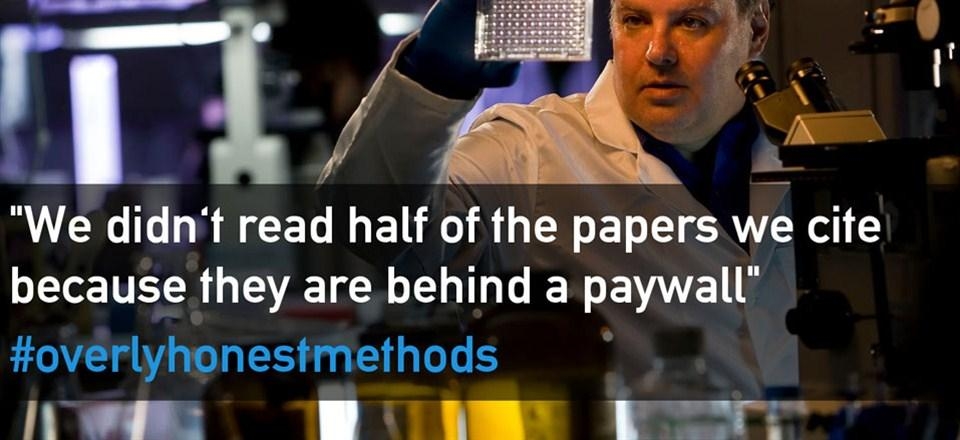
January 6, 2013, wasn't a good day for Dr. Leigh -- her Internet pseudonym. "This is my third night this week on under 3 hours of sleep. I haven't slept 6 uninterrupted hours in ages. I can not function," wrote Leigh, whose bio identifies her as a research neuropharmacologist, on her Twitter handle @drleigh. In other tweets, she vented her frustrations about work pressures and her lack of sleep, due to her crying baby. "A welcome end to a horrible day. Thanks to all and good night...," she wrote at 12:12 a.m. the following morning.
But later that day -- January 7 -- was when things got very interesting, at least from a social media perspective. "We did experiment 2 because we didn't know what ... to make of experiment 1," she tweeted at 5 p.m., using the hashtag, or Twitter conversation tag, #overlyhonestmethods.
"I was blowing off a little steam from trying to make some progress on a manuscript that I was writing at the time," Dr. Leigh explained in an email. "For me, the best way to do that is often to poke a little fun at myself. We have a very formulaic way of writing papers, and often this formula insinuates that everything we did was intentional and rigidly based in reason."
The hashtag quickly went viral, and, according to social media analytics site Topsy, generated nearly 13,000 tweets over the next four weeks. The first tweet on the hashtag, which mentioned the two experiments, has been retweeted 323 times and favorited 160 times so far.
Not only was Dr. Leigh being overly honest about her research methods, but the conversation she generated presented a rare opportunity for the general public, which doesn't typically follow insular scientific discussions, to peek behind the curtain, so to speak.
"I had no expectation that anyone would play along, or that it would take off the way it did. I've made up and participated in smaller hashtags that were more in-group, but they usually fizzled out in short order," she said. "I did not realize at the time that #overlyhonestmethods would speak to such a fundamental part of doing science, that wasn't bound by which field of science people were doing or what career phase they were in. It really ended up being something where everyone could participate and understand the human side of science."

Non-scientists tend to be so removed from the scientific process that when they encounter science at all, they only think about study results and not about the scientists -- the people -- who are collecting those results. Those studies, when they identify the author or authors, tend to share just names, institutional affiliations, and financial conflicts, if any. The conversation that Dr. Leigh sparked raises important questions about whether more information is needed about the researchers' processes and choices when it comes to collecting data.
No doubt, researchers with more traditional views may question the value of letting untrained eyes and ears into the lab, because too many amateurs in the lab can lead to broken test tubes and dangerous explosions. But there's already precedent for just that, as reporters -- both specialists and general assignment -- have long trodden the science beat. In fact, #overlyhonestmethods attracted the attention of the Boston Globe, Telegraph, Public Radio International, Huffington Post, Scientific American, and dozens of others.
The great promise of social media is that it allows a good message to reach people all around the world. But so often, even if the ambition is to go viral, it becomes a sermon to the choir. Dr. Leigh's conversation has shown that even scientists talking shop can have broad appeal.
And that's the takeaway for anyone in a specialized area -- sometimes your professional warts can be the launchpad for an interdisciplinary conversation.
This post was written by Jaclyn Schiff. Schiff is the host and executive producer of the global affairs podcast Pangea. She has written extensively on global health and development, including for NPR, Kaiser Health News, AllAfrica.com, Humanosphere, Devex and UN Dispatch. Follow her @J_Schiff.
Like this post? To read more posts like this one, please visit Impatient Optimists. And click here to sign up for the Impatient Optimists Newsletter.